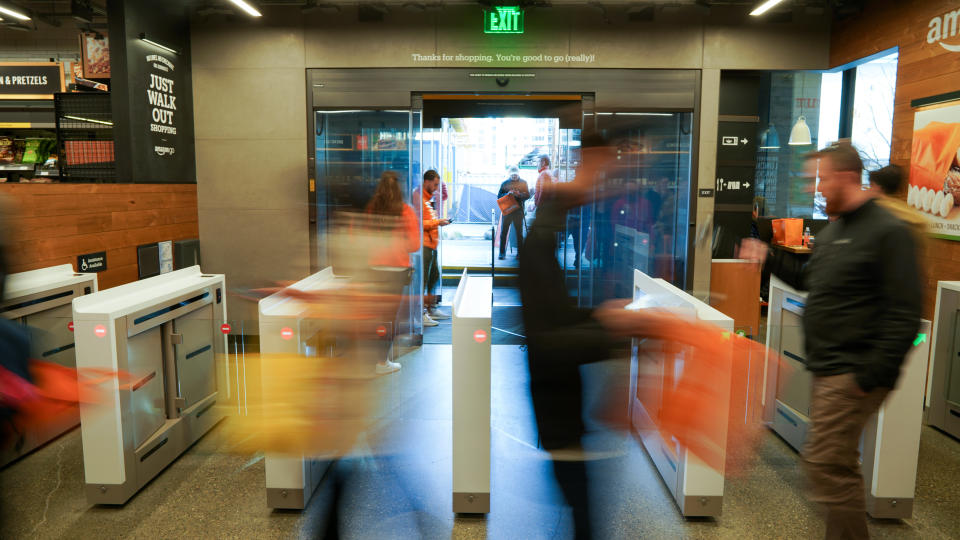New York and other cities want to ban cashless stores
New York City is weighing a proposed law that could challenge Amazon and other businesses — banning cashless stores.
A hearing was held Thursday on the bill, which has won support from legislators, unions and the city’s Department of Consumer Affairs. Amazon, which runs several cashless bookstores and one four-star store in the city, didn’t testify and declined to comment. Some restaurants, including the vegan chain By Chloe and taqueria chain Dos Toros oppose the bill and say running a cashless business protects the safety of their employees from robbery and theft.
As consumers move to pay with their credit cards, some restaurants and retailers opt to exclude cash as a way of payment. Ritchie Torres, the New York City councilman who introduced the bill last year, aims to protect populations who don’t own bank accounts or who want to use cash to protect their privacy, as well as senior consumers who are used to paying in cash.
According to a 2017 survey from the FDIC, the unbanked population in the U.S. has fallen to 6.5%. An additional 18.7% of U.S. households are underbanked, meaning they have a checking or savings account but also obtained financial products and services outside of the banking system. The rate is even higher in New York City, where one in four households are underbanked, according to a study in 2015.
“Even if we're moving in the direction of an increasingly electronic economy, why can't we have options?” Torres told Yahoo Finance. “If I don't have the money, it's fair to discriminate against me. But if I have the money, then I should be able to purchase a good or service.”
Cashless businesses say it’s safer

Business owners, on the other hand, say accepting only digital payments is good for the safety of their employees. “Not keep cash in our stores is an easy way for us to help our employees feel more comfortable at work,” said Annamaria Ferencz, operations manager at by Chloe, a restaurant chain that went cashless in its 11 locations in New York and Los Angeles in 2017. Ferencz pledges to “make reasonable accommodations” for consumers with only cash.
Businesses also say the transition to cashless has helped lines in stores move faster and eased cashiers’ burden. Torres acknowledged that, too. “I'm willing to concede that a cashless business model could add to efficiency and productivity. The question is, at what cost?” said Torres, who is confident the bill will move forward. “If you want to ensure an equitable and inclusive marketplace, then cash has to remain an accepted mode of payment.”
New York City is not alone in proposing a ban on cashless stores. Massachusetts is the only state with a 1978 law that requires businesses to accept cash. Last week, the New Jersey legislature passed a bill to ban cashless stores, which the governor is expected to sign into law. In Philadelphia, Amazon threatened to change plans to open an Amazon Go grocery store there if a cashless bill gets passed.
“Philadelphia was on a list of potential cities. They didn’t confirm how many others or which ones, but did say the legislation would impact decision making,” a spokesperson for Philadelphia Department of Commerce spoke of his communications with Amazon.
Should the government ban cashless stores? Share your thoughts with Krystal Hu via krystalh@yahoofinance.com
Read more:
What Tim Cook left out about China in Apple's revenue guidance

 Yahoo Movies
Yahoo Movies 

